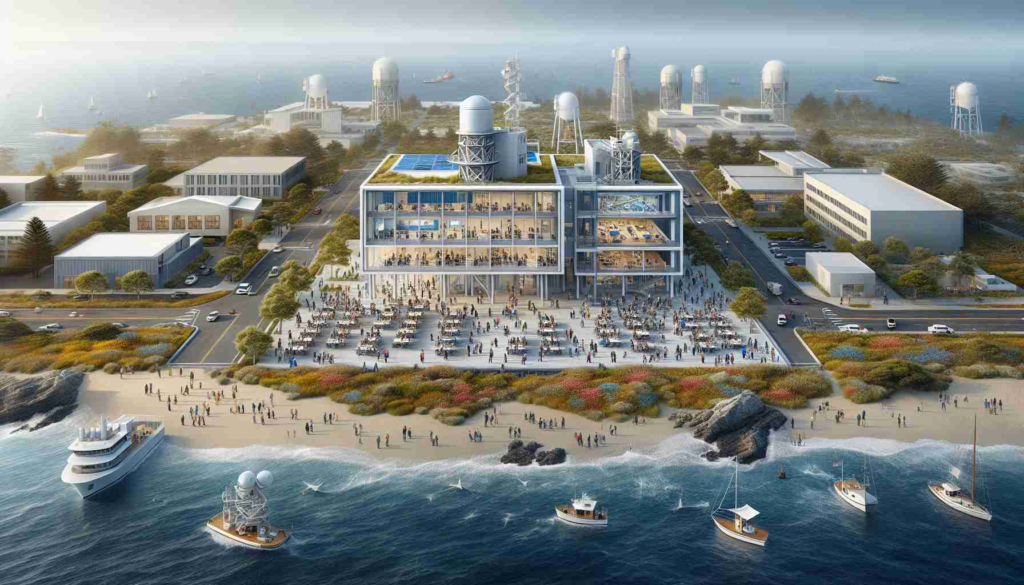
Overview: Mote Science Education Aquarium (Mote SEA) aims to revolutionize marine science and technology education. Its construction is progressing with the aim of providing hands-on experience to a wider and more diverse audience and free learning opportunities for children. Scheduled to open in early 2025, Moat SEA is establishing a futuristic learning center with STEM labs, specialized workshops and career development facilities, all with a focus on ocean literacy and conservation.
Construction of the Mote Science Education Aquarium (Mote SEA) will take a major leap forward in 2024, ushering in a new chapter in marine education. Mote SEA is developing his three innovative STEM education laboratories with an innovative vision called “Oceans for All”. The initiative aims to double the existing impact and provide schools with free access to state-of-the-art STEM education facilities that enrich the lives of visitors with marine knowledge and promote hands-on learning. I am.
Mote SEA is ready to provide excellent non-formal science education to a wide audience. Through its outreach efforts, approximately 70,000 students in Sarasota and Manatee County schools are expected to benefit from complementary marine science education. Dr. Crosby, President and CEO, emphasized the importance of this project in imparting essential science education and increasing understanding of ocean conservation to a broader audience.
Developed as a unique 1 million gallon exhibit encompassing 110,000 square feet, the aquarium will accommodate a wide range of visitors. Its educational programs are meticulously tailored to suit different life stages, from young students to retirees. Moat aims to inspire and educate the next generation about marine ecosystem conservation by working with schools and communities, especially those with limited access to such resources.
A variety of interactive labs will be available, including a marine technology lab for building underwater vehicles, a marine ecology lab for ecosystem research, and a biomedical/immunology lab for advanced research. In addition, four advanced workforce development labs help bridge the gap from education to career paths in fields such as aquaculture, conservation, and veterinary medicine.
Those interested in witnessing the progress of Mote SEA can attend the seasonal tasting event on April 17th. This event offers previews with tastings from acclaimed local restaurants and the opportunity to interact with aquarium experts.
New trends and the importance of marine education
Mote Science Education Aquarium (Mote SEA) aims to be a pioneer in marine education at the right time as the marine science and technology industry continues to grow significantly. The emphasis on STEM (science, technology, engineering, and mathematics) education reflects a global trend in which economies and industries recognize the paramount importance of a skilled and educated workforce in these fields.
Marine science is critical to understanding and addressing some of the world's most pressing issues, such as climate change, ocean pollution, and the sustainability of ocean resources. As a result, there is increased attention and investment in the industry surrounding marine technology and education. According to market forecasts, the global market for marine biotechnology, for example, is expected to experience significant growth in the coming years, further highlighting the potential impact of institutions like Mote SEA.
Market forecast and economic impact
Insights on the marine technology market suggest that strong expansion is expected in areas such as marine biomedicine, aquaculture technology, and marine renewable energy. This growth is a response to the increasing demand for sustainable food sources and clean energy, as well as the need for new medical discoveries derived from marine life. Therefore, organizations that prepare individuals for careers in these fields are not only contributing to education, but also promoting economic growth.
According to recent market analysis, the global aquarium market itself is growing steadily and is expected to continue expanding until 2025, making the opening of Mote SEA an especially opportune time. As a state-of-the-art facility, Moat SEA will contribute to this trend by fostering public interest and engagement in the conservation of marine life and ecosystems.
Industry challenges and conservation issues
One of the critical challenges facing the marine science industry is the lifeblood of biodiversity within marine ecosystems. Pollution, overfishing, climate change and habitat destruction pose significant threats to our oceans. Education centers like Mote SEA are therefore essential in raising awareness and teaching sustainable practices.
Additionally, industry experts are addressing the need for more advanced research methods and technologies to address these complex issues. The facilities provided by aquariums are not only educational venues, but also gateways to potential scientific advances in marine research and conservation efforts.
Related industry links
Individuals and educators interested in exploring the vast marine science industry can refer to prestigious organizations and research institutes such as:
– Woods Hole Oceanographic Institution: whoi.edu
– National Oceanic and Atmospheric Administration (NOAA): noaa.gov
– Marine Bio Conservation Association: marinebio.org
conclusion
Scheduled to open in early 2025, Moat SEA will play a key role in shaping the understanding and conservation of our marine environment. This will engage future generations in ocean conservation efforts and help train a workforce capable of addressing the complex challenges of marine and environmental science. Its pioneering efforts and market relevance are poised to leave an indelible mark on the industry and community at large.

Roman Perkowski is prominent in the field of space exploration technology, particularly for his work on propulsion systems for interplanetary travel. His innovative research and design is critical to improving the efficiency and reliability of spacecraft engines. Mr. Perkowski's contributions are particularly important in the development of sustainable and powerful propulsion methods essential for long-duration space missions. His research not only pushes the limits of current space travel capabilities, but also inspires future generations of scientists and engineers to explore the edges of our solar system and beyond.


